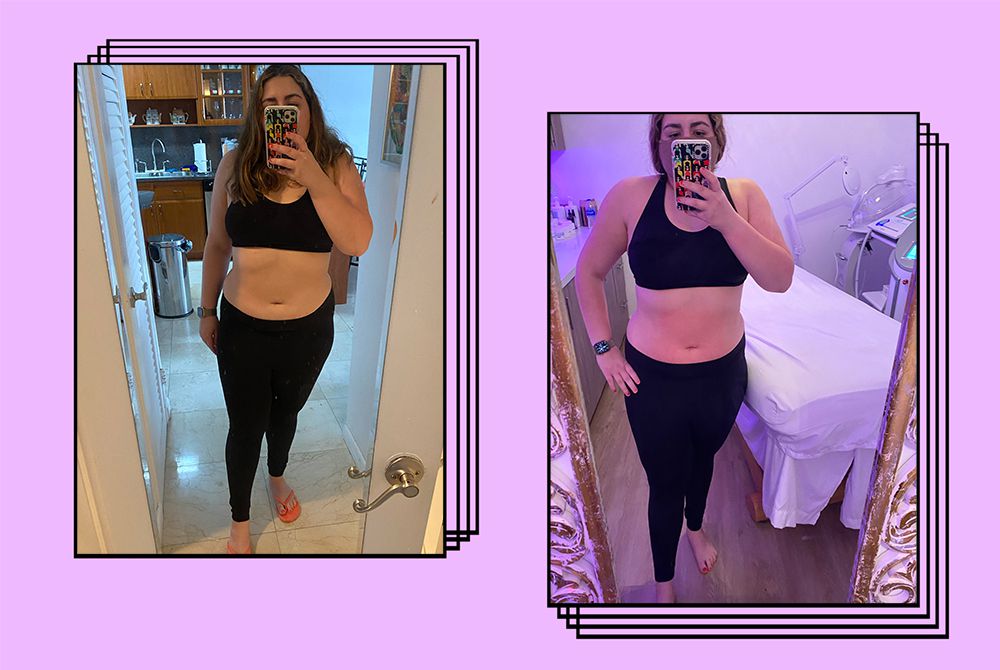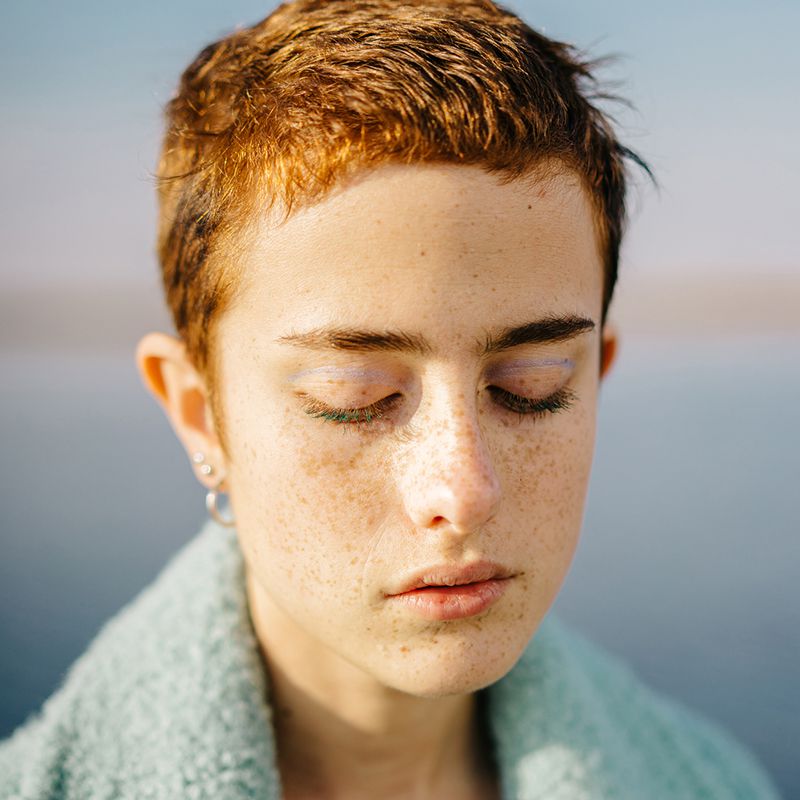Melatonin-Infused Skincare Has Calmed My Super Sensitive Skin
couple of months ago, something novel occurred: I got an ad for Milk’s Melatonin Overnight Serum ($36). My nervous laughter accompanying the algorithms omnipresence aside, I was intrigued. The promise of a melatonin skincare product is just so irresistible—and I’m not even sure what the promise is. Better sleep? Better skin during better sleep?
Even with my limited knowledge, I assumed that all melatonin skincare products should be used at night. Milk Makeup’s co-founder and VP of product development, Dianna Ruth, says this is not the case (even though their range is built for a nighttime routine). “The recommended usage, in terms of day versus night, would be influenced by other active ingredients present in conjunction with the melatonin,” she says. In this case, the combination of lavender oil and chamomile extract has a calming effect making it more suitable for your nighttime routine. But it’s the antioxidant properties in melatonin that are the crux Milk’s and other new skincare.
The advent of melatonin in skincare is a recent trend, possibly due to several promising studies.
Melatonin in Skincare
“Melatonin appears to stimulate your own body‘s natural antioxidants, which can fight free-radical damage,” Rachel Nazarian, MD, says. “Remember, free-radical damage throughout the day (from telephones, computers, lights, TV, sunlight) are daily stressors that cause premature aging of the skin.” She says recent developments and research has shown that “using melatonin topically can offset some of these aging free radicals and keep our skin looking youthful for longer.”
Clean cosmetic chemist and founder of KKT Consultants Krupa Koestline points to the other surprising benefits of melatonin. “Clinical studies have shed light on melatonin’s ability to significantly prevent sun damage when administered before UV exposure,” Koestline says. Even more surprising is a study found a link between melatonin and hair loss. The studies demonstrated that “melatonin, when applied topically to the scalp, showed improvement for hair loss as well as general scalp health.” Scientists haven’t figured out the exact mechanisms of how and why this works, but Krupa points out that we do know melatonin helps improve skin health and can deduce that by improving scalp health, it can improve hair loss.
We do know melatonin helps improve skin health and can deduce that by improving scalp health, it can improve hair loss.
The Bottom Line
Although I made my melatonin purchases bleary-eyed after taking Klonopin, the science has actually been a welcome reassurance. I have reached for Milk’s Melatonin Overnight Serum when my very sensitive skin feels inflamed. I apply it liberally to my face, neck, and chest and wake up with skin that is less inflamed and more supple to the touch. And in the short time that I’ve used Milk’s Melatonin Overnight Lip Mask, my daytime lip balms have become obsolete. If the research continues to be hopeful and brands continue to heed to it, melatonin could soon become a product not relegated to the night.








